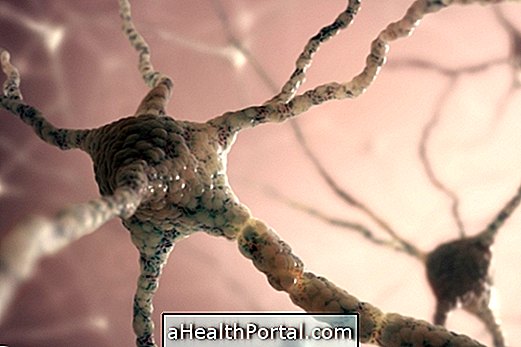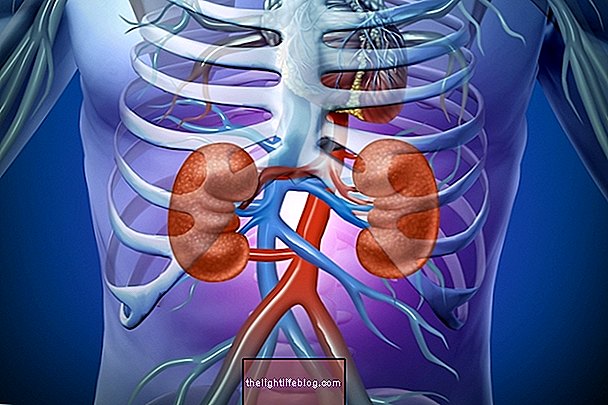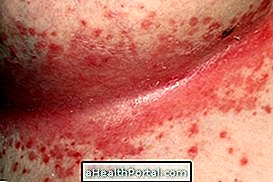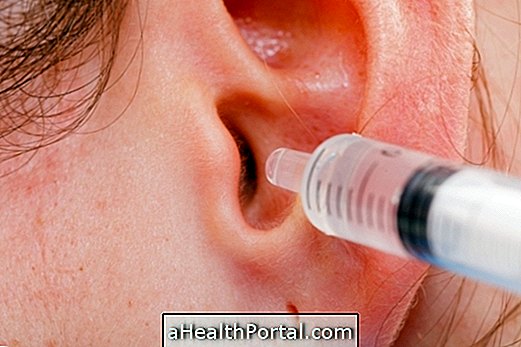Tuberous sclerosis is a rare genetic disease characterized by the abnormal growth of benign tumors in various organs of the body such as the brain, kidneys, eyes, lungs, heart and skin, causing symptoms such as epilepsy, developmental delay or kidney cysts, depending on the affected region .
This disease has no cure, but it can be treated with drugs to reduce symptoms, such as anti-seizure drugs, for example, with psychology, physiotherapy or occupational therapy sessions, in order to improve the quality of life.

Main symptoms
Tuberous sclerosis is usually characterized by mental deficiency, epilepsy and the appearance of lesions on the face, these symptoms being more frequent and indicative of tuberous sclerosis. However, other signs and symptoms may be noticed depending on the severity of the sclerosis and where the lesions appear, which are also known as benign tumors, the main ones being:
- Light spots on the skin;
- Skin growth under or around the nail;
- Lesions on the face, similar to acne;
- Reddish patches on the skin, which may increase in size and thicken;
- Developmental delay and learning difficulties;
- Hyperactivity and / or aggressiveness;
- Schizophrenia or autism;
- Change in heart rate;
- Feeling of shortness of breath and chest pain;
- Swelling of the hands, feet and ankle.
The severity of symptoms varies according to the location of the lesions, being considered more severe when they develop in the brain and heart.
The symptoms of tuberous sclerosis are usually identified during childhood through the assessment of signs and symptoms presented by the child and tests, such as genetic examination, cranial tomography and magnetic resonance imaging.
How the treatment is done
The treatment of tuberous sclerosis aims to decrease symptoms and improve the patient's quality of life. Thus, it is important that the person is followed up and has regular consultations with the neurologist, nephrologist or cardiologist, so that it is possible to start the most appropriate treatment.
In some cases, treatment can be done with anti-seizure medications, such as Valproate, Carbamazepine or Phenobarbital, to prevent seizures, or other remedies, such as Everolimo, which prevents the growth of tumors in the brain or kidneys, for example . In the case of tumors growing on the skin, the doctor may prescribe the use of an ointment to reduce the size of the tumors.
In addition, physiotherapy, psychology and occupational therapy are essential to help the individual better cope with the disease and have a better quality of life.
Was this information helpful?
Yes No
Your opinion is important! Write here how we can improve our text:
Any questions? Click here to be answered.
Email in which you want to receive a reply:
Check the confirmation email we sent you.
Your name:
Reason for visit:
--- Choose your reason --- DiseaseLive betterHelp another personGain knowledge
Are you a health professional?
NoMedicalPharmaceuticalsNurseNutritionistBiomedicalPhysiotherapistBeauticianOther
Bibliography
- MACIEL, Ana Carla S .; CUNALI, Valéria C. A. Tuberous sclerosis: case report and literature review. Pediatric Residence. Vol 5. 2 ed; 78-81, 2015
- MASCARENHAS, Maria Inês; JANEIRO, Maria Carlos; WILLOW, Barbara. Tuberous Sclerosis: Two cases of a rare disease. Rev Clin Hosp Prof Dr Fernando Fonseca. Vol 2. 1 ed; 33-36, 2014























